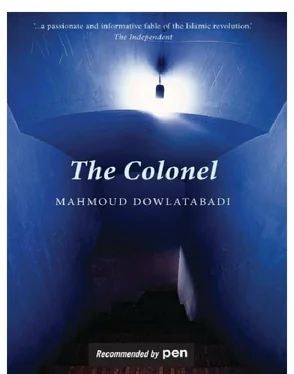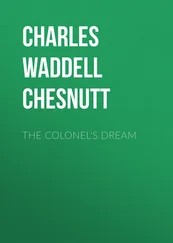Amir was intimidated by the sense of power that he felt all around him, among those grand people who had nothing in common with him. He was alone and lost, a stranger among strangers. He looked dejectedly around in the hope of finding someone he knew, a pretty futile exercise. All he saw was a procession of men dressed in black coming in through the four entrances. To escape from this dangerous and frightening isolation, all he could do was dart from one pillar to another. So as not to excite suspicion by making it seem as if he was trying to hide, he leaned casually against each one as he reached it. He felt safe there and could see what was going on.
This was pure hell. How could he get out of it? On either side of the doors stood invisible sentries, while more and more dark-suited men streamed into the hall. They all seemed to know each other, as if they had been summoned here at this late hour for some extraordinary meeting. Was it something to do with the assassination of the police chief, which had taken place that very night, just before midnight?
Monsters, ghouls!
The new arrivals looked like demons, their size nigh surpassing the pillars in height and girth. Out of the four of them, three wore long cloaks, with sweatbands wound around their heads. Their faces were round and chubby, boneless, like pink balloons with eyes and noses painted onto them. Seen from below, they looked like minarets, small, medium and large. The littlest one was the size of a Scud missile and Amir could now see why the ceiling was so high. The fourth one was a Slav, the same size as the others, wearing a traditional Russian long white shirt with embroidered hem, and tight trousers tucked into a pair of tall brown boots. The Slav’s square, bony face was endowed with a bushy moustache and long curly hair that fell over his forehead. The biggest of the new arrivals acknowledged the respects of the black-suited crowd with a proud nod of his head and carried on, looking neither to his right nor his left, to the end of the hall, which looked to Amir like the prayer niche of a mosque, as the crowd parted to make way for him and his entourage. The Slav put his hand to his chest, bowing humbly to the crowd, and followed the other three monsters, half a step behind them. As they came level with Amir’s gaping eyes, he could not help looking up at them, as if at the shaking minarets of Isfahan, 21for the knot of the sweatband round the fez of the biggest one almost touched the ceiling and his painted eyes were like the eggs of a goose, staring straight ahead without expression, paying no attention to the prostrations of the rows of respectful, silent onlookers. The three of them made a smooth and practised progress through the crowd as if rolling on invisible rails, while the Slav praised and lauded them to the people.
They said that a bereaved family was coming in. Amir looked up and saw five or six people: a couple with a young boy and a girl and a smartly dressed youth who seemed to have oiled his hair in mourning for his father. The Slav, with no glimmer of human kindness on his face, appeared carrying a tea boy’s gold-plated round tray. On it were glasses of tea, and one cup half full of tea, and he stood in front of the small-town youth. Amir remembered how thirsty he was. He tried to take a glass of tea, but the Slav turned the tray round, forcing the cup onto him. 22Amir had forgotten all about his thirst by now, but he took the cup all the same. He would use it as an excuse for finding a corner to drink it. A cup of tea in his hand would make him part of the scene and explain his presence to the crowd, who seemed to be eyeing him up and down. It allowed him to wander along the eastern end of the prayer hall.
In the north corner he found a low door that opened into a neat little room. Amir felt that divine intervention had led him to this hiding place and he was drawn in. On the threshold he was stopped short by what he saw. The room was like the pantry of the Safi mosque in Rasht. 23Six or seven middle aged men, smartly dressed, were sitting on brown bentwood chairs. This was something that Amir did not want to see, particularly as one of them seemed to be Khezr Javid, who was looking at him askance, as if they had met somewhere three generations back. There was nothing Amir could do, except stand there, just inside the ancient door. If he retreated, he thought, he would only arouse more suspicion. So I greeted him, as if it was the most natural thing in the world, and drank the rest of the tea .
He ran his eye over the other men, who were busy chatting away and pretending not to be looking at him or to have even noticed him, except for the Prophet Khezr, who was now staring at him more obviously. He looked like a man whom he had seen a thousand times on the back of the Women’s Weekly magazine. Khezr Javid was sitting, staring at Amir, in the same pose that he had adopted at his interrogation, three incarnations ago, and a shiver ran down his spine at the memory of it. Why wouldn’t Khezr give some sign that he had recognised him? That way he would be sure that at least one person in the room knew him for who he really was, and who better than a secret policeman. He just wanted to find someone he knew in this bizarre place, and explain how he had come to find himself there. He had to avoid giving the wrong impression. But Khezr Javid showed no sign of acknowledging him. Amir was convinced that they were all secret policemen on high alert, which made him even more frightened. His head was whirling with all the accusations that might be levelled against him, and tears welled up in his eyes at the thought of what a dangerous mess he had got himself into. He wanted to beg the men for mercy and get them to understand that he knew nothing at all about the business of Mansour Salaami’s bloodstained knife.
Looking silently into their unblinking eyes, he begged that they would get on with it and start asking him questions, so that he could clear the air with them, but it seemed that they were not interested in investigating anything, or perhaps were just pretending not to be interested.
Amir began to weep openly until, one after the other, they looked up and regarded him with a mixture of suspicion and mockery. One of them pointed at him:
“Just look at the young gentleman now!” He turned to Amir: “What are you crying for, then?”
“For … for the late General…”
There was a fusillade of laughter at this and Amir, mortified, dissolved into floods of tears. His sobs grew ever more violent until they reached a crescendo of loud and uncontrollable wailing. Suddenly a bullet whizzed through the air. The policemen immediately reached to their shoulder holsters for their guns, pushed Amir out of the way and ran out. He followed them out into the hall and looked out onto the street, where a pitched battle had broken out. The south side of the building, which gave onto the street, had turned into a single panel of glass. Through it he could follow the battle outside. The people who had been at the party in the post office building were now out on the street. Amir found himself in a scene from the late 1940s, watching the railway workers at Abbasi Square laying into a crowd in smart black suits.
As the august gathering in the hall dissolved into chaos, Amir saw a chance to get away. He forgot his tears and began running from column to column of the prayer hall. He did not know where he was going or what he could do, except use the general confusion to find his way out of that horrible place unnoticed. He found himself in a place where there was no sign of the monstrous creatures, facing a wide staircase that seemed to lead down to a basement; he ran down it. But as he went down, he heard a din of clashing swords and knives. His way was blocked by a thicket of flailing weapons. As he rushed back and forth looking for a way through, he ran up against two sword blades thrust directly at him. They were wielded by two young lads wearing the black shirts worn by flagellants, with Arab keffiyahs wound round their heads. 24With a forthrightness that belied their age, they glared at Amir as if about to lynch him:
Читать дальше












